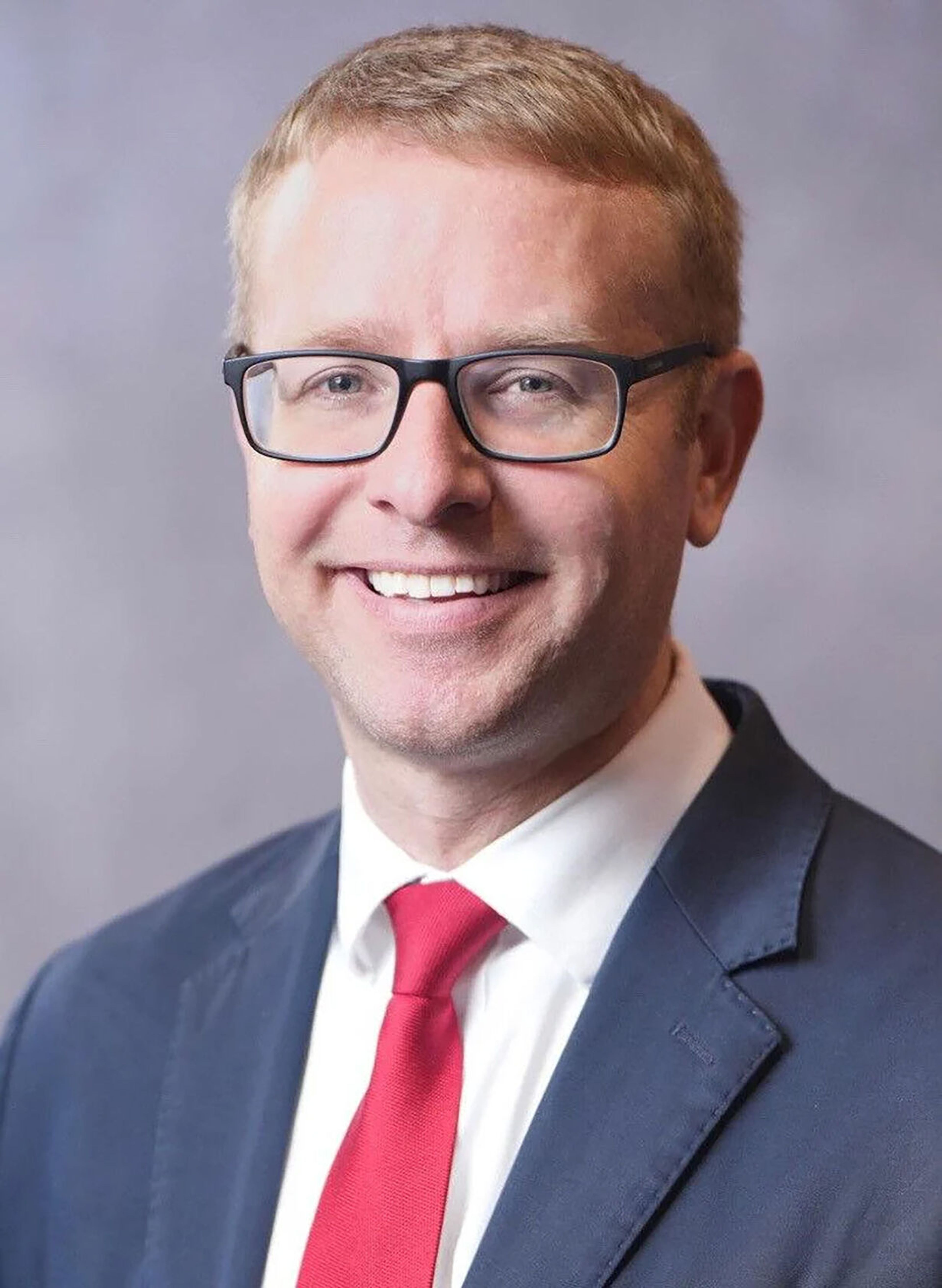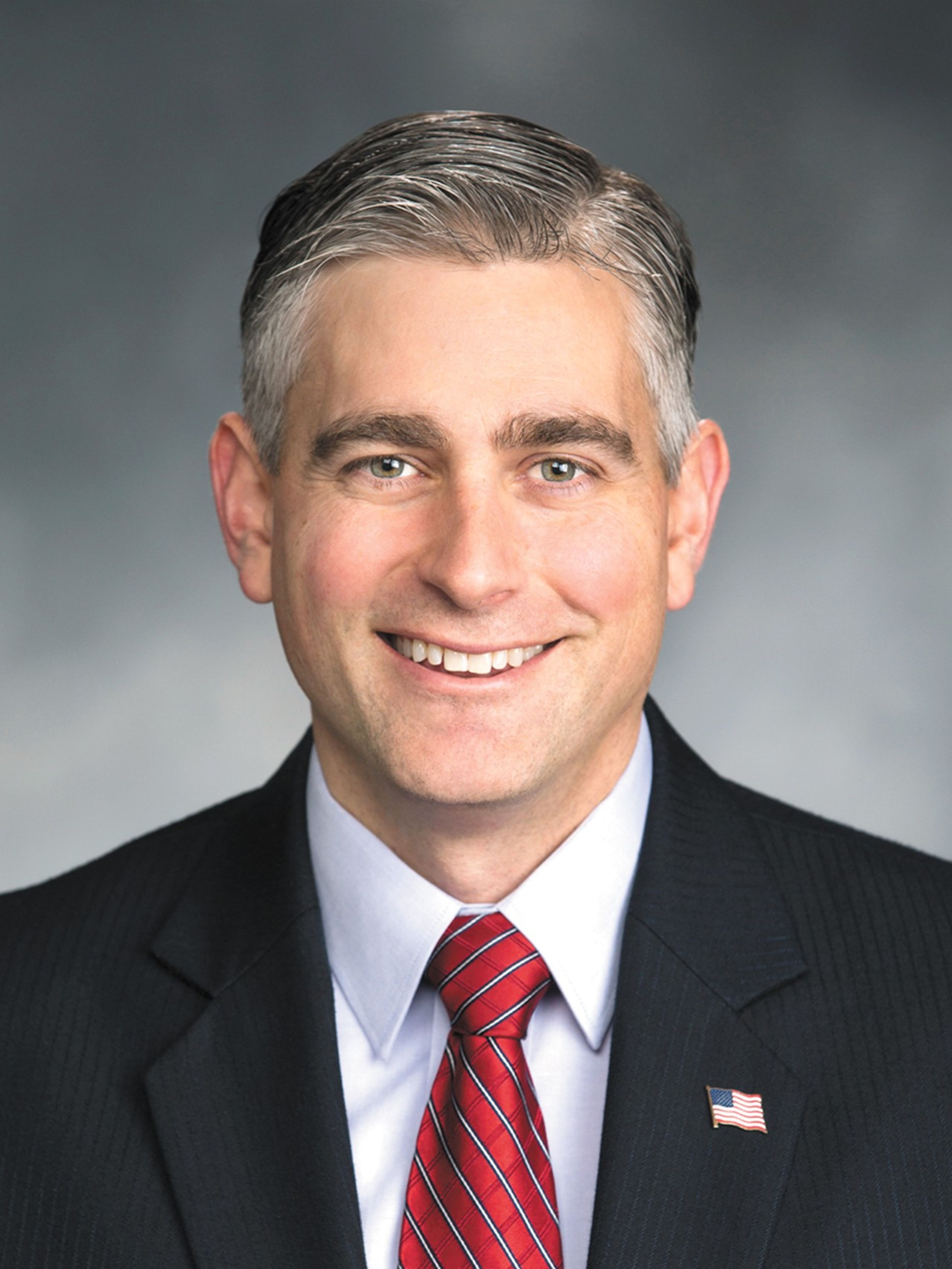Idaho's new Department of Health and Welfare director wants to do better
New health director outlines vision for improved foster system in Idaho
Idaho’s new Department of Health and Welfare director is ready to make sweeping changes to the state’s largest agency.
Alex Adams officially took his position June 5 and has already implemented a number of rules and made several leadership changes to help execute his vision — which centers on improving the foster care system.
He took further steps this week by waiving the $100 licensing fee for family daycare homes with six or fewer children.
BACKGROUND
Adams, 39, said his experience as a pharmacist and his interest in policy meant leading the health agency is the perfect intersection of the two.
“What attracted me to it was health care background, experience in state government, hopefully a track record of being able to demonstrate I’ve gotten things done in state government, and it just felt like all those parts of the Venn diagram were overlapping,” Adams said in an interview.
He followed in the footsteps of his father, grandfather and great grandfather by going to pharmacy school. He has a bachelor’s degree and doctor of pharmacy from the University of Toledo and master’s in public health from Johns Hopkins University.
Adams said that even during school he found himself more interested in looking into why there were differences between what could be done in pharmacies in Ohio and Michigan than he was in actually practicing in the field.
He took a job in Washington, D.C., for pharmacy trade group National Association of Chain Drug Stores, which lobbied state and federal governments on behalf of large chain pharmacies. Adams and his wife, Jennifer, who is an Idaho native, then moved to the Treasure Valley and he was selected to lead the state Board of Pharmacy in 2015.
The regulatory entity operates under the state Division of Occupational Licensing. Adams said his focus as executive director of the board was to reduce as much regulatory red tape as possible and increase access to services. During his tenure, he oversaw a reduction of around 40% of the board’s regulations, the Idaho Press previously reported.
One of his initiatives that he highlighted was allowing trained pharmacy technicians to administer vaccines; Idaho was the first state to do this and much of what the Gem State did was included in the Trump administration’s Public Readiness and Emergency Preparedness (PREP) Act at the beginning of the COVID-19 pandemic, Adams said.
In 2018, he was hired by then Gov.-Elect Brad Little to serve as budget director and oversee the Division of Financial Management. He helped lead the effort to implement Little’s major initiatives such as the grant program Idaho Launch for graduating high school seniors, and a bill that made available $1 billion for school facilities.
VISION FOR CHILD WELFARE
Adams said that if he’d been asked two years ago what his focus would be for IDHW, he likely would have said Medicaid.
A huge portion of the state budget goes toward the program and many lawmakers have called for reductions to it over the years.
However, in preparing for the job, he looked into past reports by the Office of Performance Evaluations that found deficiencies and significant challenges in the state’s foster care system, and he also followed hearings from the Child Protection Legislative Oversight Committee in which foster parents have repeatedly said there’s a need for a cultural shift in the division.
“I don’t think that there’s anything more personal that this department does than child welfare,” Adams said. “And I don’t think you can make a bigger long-term ROI (return on investment) than improving outcomes in the child welfare system.”
He said he’s been interviewing foster parents since taking the position and hearing many common complaints about poor communication with the department, the feeling they weren’t trusted and that they weren’t heard.
“Frankly, their stories are gut-wrenching. Hearing what some of them have experienced, hearing their perception of how their cases have gone, I know that we can do better,” Adams said. “And I know that we will do better and that’s why I’ve made that my focus.”
Creating the needed changes is going to require policy changes as well as cultural shifts, he said.
In just the first couple of days on the job, he implemented several temporary rule changes, which removed adoption fees, added long-term foster parents to the definition of kin, reduced the time requirement for initiation of work on an application to become a foster parent and moved Idaho’s rules on foster care to a national model.
Adams also directed the agency to create a “Foster Parent Bill of Rights” and is working to train staff to adhere to it; the document will go live Aug. 1. It states foster families have the right to “be treated with dignity, respect, trust, value, and consideration as members of the professional team caring for foster children;” “be supported by the department in their valued role as the primary provider of foster care;” have “timely, accurate, and respectful communication with department staff;” “be actively involved in case planning for children in their care;” and “raise concerns without fear of reprisal and have issues addressed in a sensitive, respectful, timely and confidential manner.”
Adams said cultural changes in the department can be nudged through policies, but it really starts with leadership.
He highlighted his hire of Monty Prow as his deputy director of child, youth and family services. Prow had been the director of the Idaho Department of Juvenile Corrections. Adams said he was impressed with Prow’s focus on prevention and wanted him to bring that to the Child Welfare division.
“I think it speaks a lot of what his motivations are and what makes him tick — that we would go from a cabinet-level director to a deputy director-level position, that’s how much he cares about these kids,” Adams said.
Prow said he sees a lot of crossover between the work he did in juvenile corrections and what he’s doing now in child welfare and foster care. In fact, he said, he’s likely to work with many of the same young people.
Around 40% of kids in the juvenile corrections system have some involvement in child welfare or behavioral health at the department, he said, and about 15% of kids coming into corrections were living in a foster home.
“Those kids are the same, it’s just where they show up in the system first,” Prow said.
Prow wants to focus on preventing the need for removing children from the home and entering the system at all; this can look like providing access to parenting classes, substance abuse disorder treatment, mental health treatment, pre- and post-natal support, and other services.
Removing children can cause significant long-term consequences, which is why there is such a focus on preventing it. In cases where removal may be necessary for the safety of the child, finding a permanent placement as quickly as possible is the goal.
Prow also shares Adams’ goal of significantly increasing the number of foster families available so children who must be removed from emergency situations will immediately have a safe and stable place to go.
Adams said his goal is to double the rate of families to foster children. Right now, there are fewer homes than there are kids. Adams hopes to improve the rate of families per child to 1.5 in the next two years by increasing the number of families through recruitment and retention and decreasing the number of children who enter foster care.
Adams also noted his hire of Jean Fisher, who worked for more than 30 years with the Ada County Prosecutor’s Office and specialized in crimes against children. She will be the division administrator for youth safety and permanency starting July 8.
Adams said his focus on child welfare did not mean the other functions of the department would be ignored. What it does mean is new budget requests and heightened energy would be centered on the system.
IDHW CHALLENGES
Managing the state’s largest department, with 3,000 employees and taking up the largest share of the state budget, isn’t without significant challenges.
Adams also noted that the pandemic elevated the visibility of the position, which comes with increased scrutiny — he said he welcomes the scrutiny and is trying to improve transparency and accountability.
There has been increased tension in the past couple of years between the Legislature and the health agency. In 2023, the state budget-writing committee launched an audit of a large federal grant program administered by the department that resulted in multiple significant findings and a referral to the attorney general’s office for further investigation.
The former director, Dave Jeppesen, disagreed with all of the findings and while he said there would be increased training to address concerns brought up, he did not believe the department did anything wrong in administering the grant program.
Jeppesen retired at the end of 2023 after serving in the position for five years, during which he oversaw the implementation of Medicaid expansion and the state’s COVID-19 response. Department of Insurance Director Dean Cameron served as the interim director until Adams took the reins in June.
Adams said he’s working through an action plan Cameron left for him, which includes clear communication on what the agency is doing and why.
He has implemented monthly reporting on Medicaid actual expenditures versus the forecasted expenditures as well as on information related to Self Reliance programs. The Self Reliance Division oversees programs such as child support, Supplemental Nutrition Assistance Program (SNAP), Temporary Assistance for Families in Idaho (TAFI), and Aid to the Aged, Blind, and Disabled (AABD).
Adams said these programs can serve as a “canary in a coal mine” as they can be an early indicator of shifts in economic conditions.
Medicaid will also continue to be a focus. Adams re-shaped his leadership structure so Juliet Charron, who has been overseeing Medicaid as an administrator since 2021, now serves as deputy director of Medicaid in his office.
Adams said he thought it was important the Medicaid division report directly to him.
The office is also gearing up for the new Idaho Behavioral Health Plan — which is meant to coordinate mental health and substance use disorder services across the state. The plan is going to launch July 1.
Implementing the program had been in question because of a law signed by Gov. Brad Little in April that he and health care providers said may disrupt services because of how it is written. The law requires legislative approval for all Medicaid plan amendments and federal waivers, and the behavioral health plan requires plan amendments.
The agency sought a legal opinion from the Idaho Attorney General’s office, but Adams said the department has decided to stay on schedule for implementation.
“We felt comfortable enough in what we were hearing for the Behavioral Health Plan that we did move forward with the necessary waivers or amendments.” he said. “The risk of disruption to service was too great not to move forward.”
Guido covers Idaho politics for the Lewiston Tribune, Moscow-Pullman Daily News and Idaho Press of Nampa. She may be contacted at lguido@idahopress.com and can be found on Twitter @EyeOnBoiseGuido.








